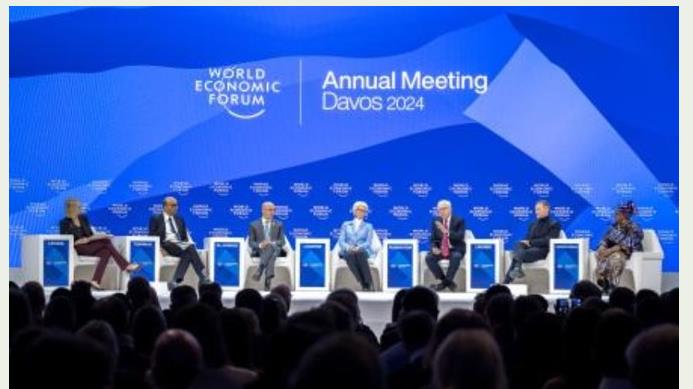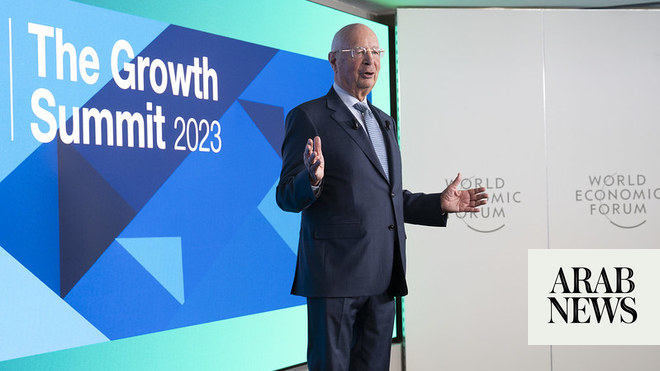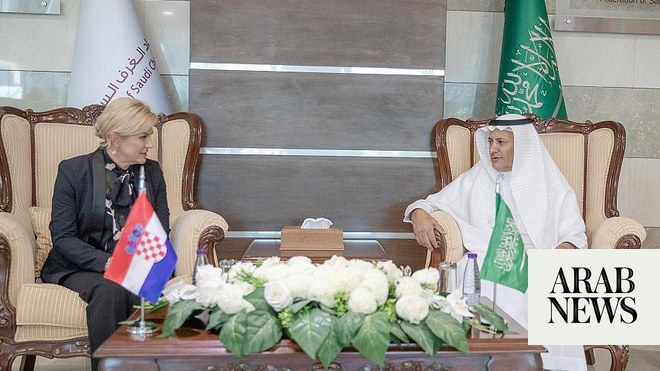
Saudi finance minister: ‘We should work on seeing how we can form our own destiny’
German counterpart: Global economy has shown ‘remarkable resilience’ since onset of pandemic
WTO chief: ‘In spite of all the uncertainties, trade has remained largely resilient’
LONDON: Governments and business leaders must focus on shaping their own “destiny” rather than being beholden to negative economic forecasts, a panel of finance ministers and economic experts said on Friday at the World Economic Forum in Davos, Switzerland.
This despite projections by both the World Bank and the International Monetary Fund that the 2020s will be a decade of low growth.
Recognizing the value of such projections, Saudi Finance Minister Mohammed Al-Jadaan said it nonetheless remains within government power to change them.
“(World Bank President) Ajay Banga said at this event that these were ‘projections not destiny,’ and therefore we should work on seeing how we can form our own destiny and shape the way we do things by adopting policies to fuel growth,” Al-Jadaan told attendees.
Acknowledging the gravity of current geopolitical tensions and financial pain being felt worldwide, he stressed that “immediate risks” require redressing.
But his optimistic outlook was shared by Ngozi Okonjo-Iweala, director general of the World Trade Organization, who said the tendency to focus on the “pessimistic” things that may happen overcast the “bright shoots” that she is seeing.
“In spite of all the uncertainties, trade has remained largely resilient,” she added. “It was because of trade that Europe was able to find other sources of energy from the US, the Gulf and elsewhere to make up for the withdrawal of energy from Russia.
“And it’s trade that allowed 35 (African) countries dependent on Black Sea grain to source alternatives.”
Amid reports of fragmentation and geopolitical tension, there are new shoots of trade growth, including rapid expansion in services and digital trade, she said.
Recent data suggests that growth in digitally delivered services is also one to pay attention to, with an annual increase of 8 percent, and Okonjo-Iweala urged those listening to ask themselves how best to support this.
Noting that 2023 had been a “strange year,” European Central Bank President Christine Lagarde said it is important not to disregard consumption as a driving force of growth.
“Trade went down and was massively disrupted by this model of ‘goods versus services versus goods’ over the course of the last two years, but it’s beginning now to really pick up,” she added.
“In October, we had global trade numbers that for the first time in many months were up, and the pattern of trade has been changing.”
Similarly, German Finance Minister Christian Linder said “given the historic shocks” that have rattled the world since the onset of the COVID-19 pandemic, the global economy has shown “remarkable resilience.”
However, Singapore’s President Tharman Shanmugaratnam warned against “slow-moving changes” that are making their mark.
“We know what they are. We know what’s happening in the global ecological balance. We know what’s happening in terms of aging societies which we’re by and large not prepared for,” he said.
“We know what’s happening with the gradual drift toward polarization. These are real threats to resilience and human security. And I’m not even talking about the wars.”












